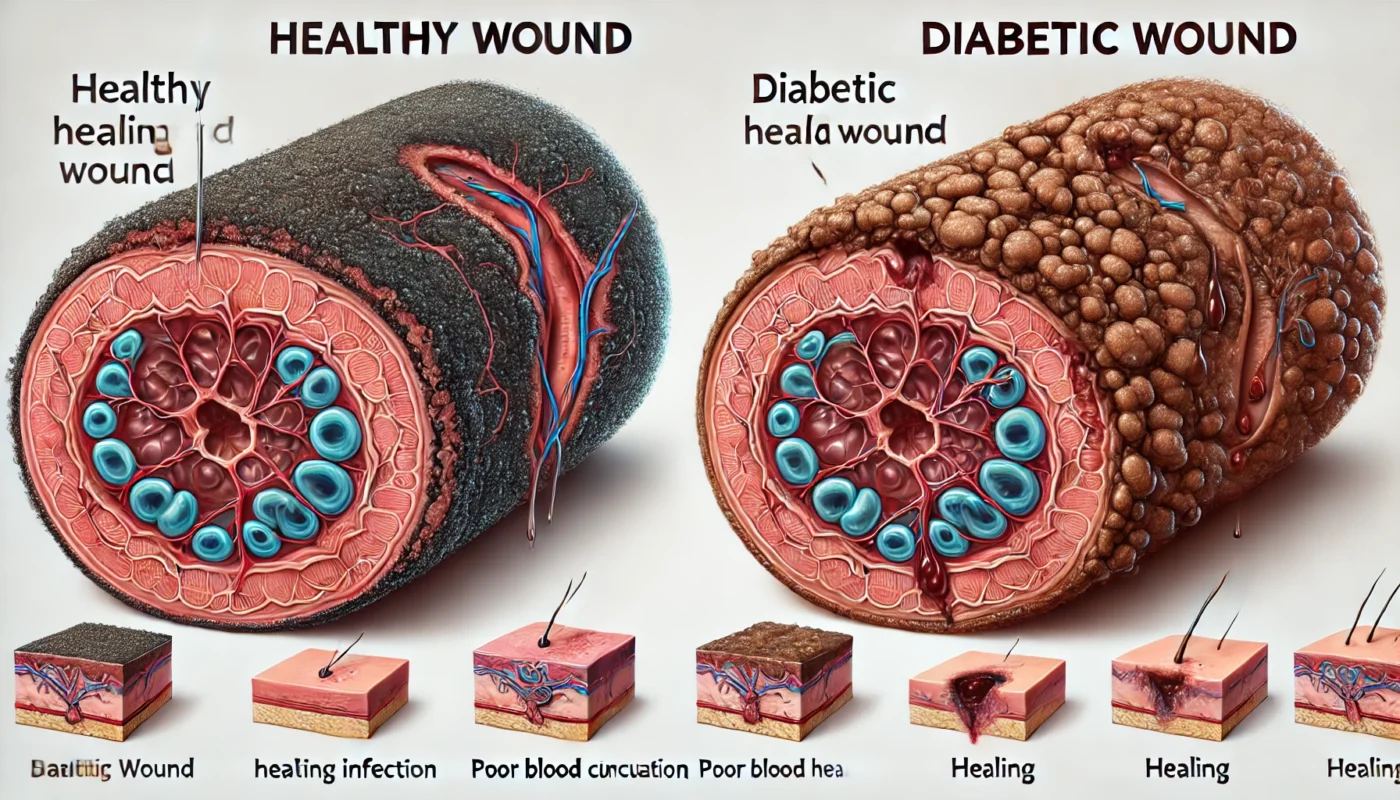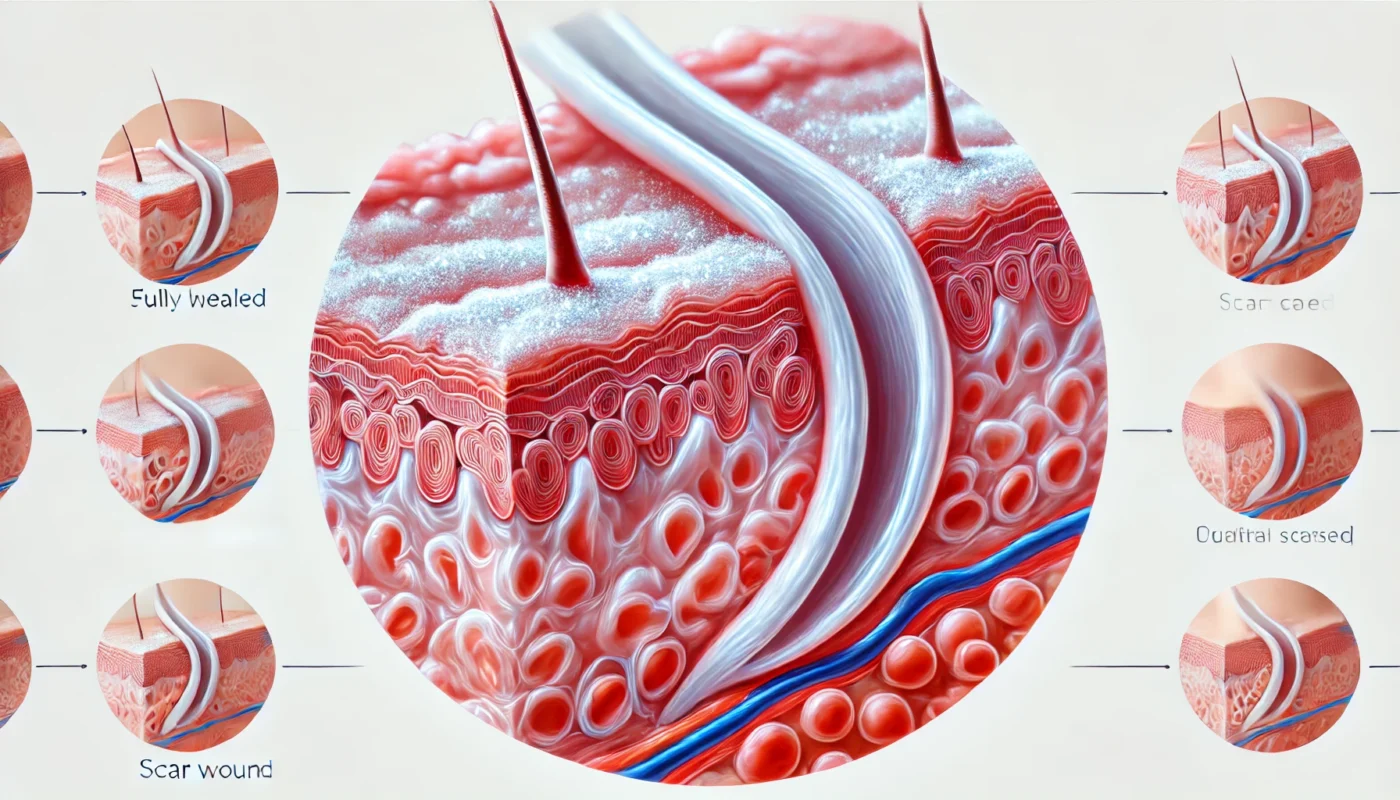Opiates are a class of drugs derived from the opium poppy plant, primarily used for their analgesic (pain-relieving) properties. Common opiates include morphine, codeine, and oxycodone. While highly effective for pain relief, they come with a range of potential side effects, particularly concerning the digestive system.
Tag Archives: healthcare providers
Oxycodone is a potent opioid analgesic, commonly prescribed for managing moderate to severe pain. It works by binding to the mu-opioid receptors in the brain, altering the perception of pain and emotional response to it. As effective as it is, Oxycodone is not without its risks, including potential dependency and a host of side effects ranging from dizziness to respiratory depression.
Diabetes, a chronic condition characterized by elevated blood glucose levels, presents numerous challenges, one of which is impaired wound healing. This complication can lead to severe consequences if not managed properly, making it imperative for individuals with diabetes to understand the nuances of diabetic wound care. This article delves into the intricacies of diabetic wound management and offers practical strategies to prevent complications.
In the realm of health and wellness, understanding tissue healing times is crucial for anyone looking to optimize their recovery and well-being. However, myths and misconceptions often cloud this topic, leading to misunderstandings about how the healing process truly works.
For fitness enthusiasts and health-conscious individuals, debunking these myths can provide valuable insights into efficient recovery strategies. This article delves into prevalent myths about tissue healing times, supported by scientific insights and practical advice, to empower you in your wellness journey.
In the aftermath of any traumatic injury, including stab wounds, the journey to full recovery doesn’t end once the wound has closed. The long-term care of healed stab wounds is a crucial step to ensure optimal recovery and prevent potential complications. This article delves into the complexities of wound healing, offering practical advice and insights grounded in scientific research to help individuals manage their recovery process effectively.
n today’s fast-paced world, where ailments and injuries are often managed with over-the-counter medications, understanding the implications of exceeding painkiller dosages is crucial. Painkillers, or analgesics, are indispensable for managing pain, but they also come with risks when not used responsibly. This article delves into the dangers of surpassing recommended dosages, offering insights for fitness enthusiasts, health enthusiasts, and medical patients alike.
Pain is a complex and multifaceted experience, often serving as a warning signal from the body. It can be acute, arising suddenly due to injury or illness, or chronic, persisting over time and affecting daily life. Understanding the nature and source of your pain is crucial in determining the most effective management strategy.
Pain management is a multifaceted approach that aims to reduce discomfort and improve quality of life for individuals experiencing pain. It involves a combination of medical, physical, and psychological therapies tailored to the individual’s specific needs. Pain specialists are healthcare professionals trained in diagnosing and managing various types of pain, from chronic conditions to acute injuries.
Finding the right pain management specialist can be a daunting task, especially when you’re trying to navigate the myriad of options available to you. As someone well-versed in health and wellness, I understand the importance of holistic and alternative approaches to managing pain. This article aims to guide you through the process of selecting the best pain management specialists in your area, while also offering insights into the diverse strategies these professionals employ to alleviate discomfort and enhance overall well-being.
Recovery after surgery can be a challenging journey, often accompanied by swelling and bruising. These are natural responses to surgical trauma, but they can be uncomfortable and may prolong the healing process. Fortunately, there are vitamins and supplements that can help mitigate these effects. This article delves into the top vitamins for post-surgery swelling relief, offering insights into how they work and how best to incorporate them into your recovery plan.
Swelling, medically termed “edema,” is a common post-surgical phenomenon. It occurs as part of the body’s inflammatory response to trauma and is a result of increased blood flow to the affected area. While essential for healing, excessive swelling can be uncomfortable and may impede recovery. Therefore, managing post-surgery swelling is crucial for a smoother and quicker healing process.










